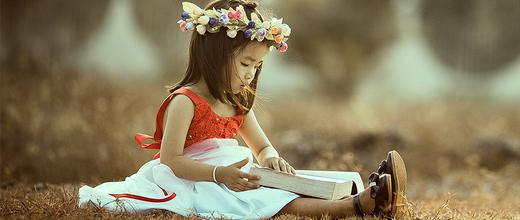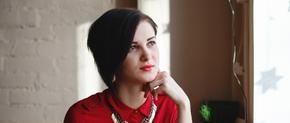The views expressed in our content reflect individual perspectives and do not represent the authoritative views of the Baha'i Faith.
“If I just teach my children how to be good people, won’t their innate sense of human dignity prevail?” That question crops up a lot lately, as spiritual-but-not-religious adults become parents.
All around the world, many, many people who describe themselves as spiritual but not religious have now decided to raise their children without a traditional belief system. That helps prevent the blind imitation the Baha’i teachings warn us about:
… blind imitation of the past will stunt the mind. But once every soul inquireth into truth, society will be freed from the darkness of continually repeating the past. – Abdu’l-Baha, Selections from the Writings of Abdu’l-Baha, p. 248.
But without that traditional spiritual framework, are we in danger of raising an entire generation of children who lack a moral compass? The Baha’i teachings offer this answer:
There are some who imagine that an innate sense of human dignity will prevent man from committing evil actions and insure his spiritual and material perfection. That is, that an individual who is characterized with natural intelligence, high resolve, and a driving zeal, will, without any consideration for the severe punishments consequent on evil acts, or for the great rewards of righteousness, instinctively refrain from inflicting harm on his fellow men and will hunger and thirst to do good. And yet, if we ponder the lessons of history it will become evident that this very sense of honor and dignity is itself one of the bounties deriving from the instructions of the Prophets of God. We also observe in infants the signs of aggression and lawlessness, and that if a child is deprived of a teacher’s instructions his undesirable qualities increase from one moment to the next. It is therefore clear that the emergence of this natural sense of human dignity and honor is the result of education. Secondly, even if we grant for the sake of the argument that instinctive intelligence and an innate moral quality would prevent wrongdoing, it is obvious that individuals so characterized are as rare as the philosopher’s stone. An assumption of this sort cannot be validated by mere words, it must be supported by the facts. Let us see what power in creation impels the masses toward righteous aims and deeds! Aside from this, if that rare individual who does exemplify such a faculty should also become an embodiment of the fear of God, it is certain that his strivings toward righteousness would be strongly reinforced. – Abdu’l-Baha, The Secret of Divine Civilization, pp. 97-98.
Certainly, as Abdu’l-Baha pointed out, “instinctive intelligence and an innate moral quality” will prevent some from “inflicting harm on his fellow men.” Those souls, however, are the exception rather than the norm. Most of us require the fear of God—which doesn’t mean literal fright in the context of the Baha’i teachings—but which does mean the healthy respect for the fact that we will all eventually face a reckoning for our worldly actions:
Ye, and all ye possess, shall pass away. Ye shall, most certainly, return to God, and shall be called to account for your doings in the presence of Him Who shall gather together the entire creation … – Baha’u’llah, Gleanings from the Writings of Baha’u’llah, p. 246.
O Son of Being! Bring thyself to account each day ere thou art summoned to a reckoning; for death, unheralded, shall come upon thee and thou shalt be called to give account for thy deeds. – Baha’u’llah, The Hidden Words, p. 11.
As parents, then, the Baha’i teachings advise us to train our children’s hearts, minds and souls in the ways of the spirit. How can we best accomplish that goal?
Experts across many disciplines and fields advise using one consistent technique: the power of example. Parents who meditate, read from the holy writings, pray and act toward others with love and consideration exert a powerful gravitational model for their children. Their actions, and the importance they assign to those actions made evident by their consistency, influence their children more than just about anything else they can possibly do. If the parents evince spiritual characteristics in their daily lives, most likely their children will, too:
But the indispensable basis of all [education] is that he should develop spiritual characteristics and the praiseworthy virtues of humankind … his outer being luminous, his private character radiant, his heart sound, his thought elevated, his understanding swift, his rank noble. – Abdu’l-Baha, from a tablet translated from the Persian.
When we expend our energies as parents, grandparents, aunts and uncles in educating children in the ways of the human spirit, we accomplish what the Baha’i teachings describe as “the most meritorious acts of humankind:”
The education and training of children is among the most meritorious acts of humankind and draweth down the grace and favour of the All-Merciful, for education is the indispensable foundation of all human excellence and alloweth man to work his way to the heights of abiding glory. If a child be trained from his infancy, he will, through the loving care of the Holy Gardener, drink in the crystal waters of the spirit and of knowledge, like a young tree amid the rilling brooks. And certainly he will gather to himself the bright rays of the Sun of Truth, and through its light and heat will grow ever fresh and fair in the garden of life. …
If, in this momentous task, a mighty effort be exerted, the world of humanity will shine out with other adornings, and shed the fairest light. Then will this darksome place grow luminous, and this abode of earth turn into Heaven. The very demons will change to angels then, and wolves to shepherds of the flock, and the wild-dog pack to gazelles that pasture on the plains of oneness, and ravening beasts to peaceful herds, and birds of prey, with talons sharp as knives, to songsters warbling their sweet native notes. …
Every child is potentially the light of the world—and at the same time its triple darkness; wherefore must the question of education be accounted as of primary importance. From his infancy, the child must be nursed at the breast of God’s love, and nurtured in the embrace of His knowledge, that he may radiate light, grow in spirituality, be filled with wisdom and learning, and take on the characteristics of the angelic host. – Abdu’l-Baha, Selections from the Writings of Abdu’l-Baha, pp. 129-130.

















Comments
Sign in or create an account
Continue with Facebookor